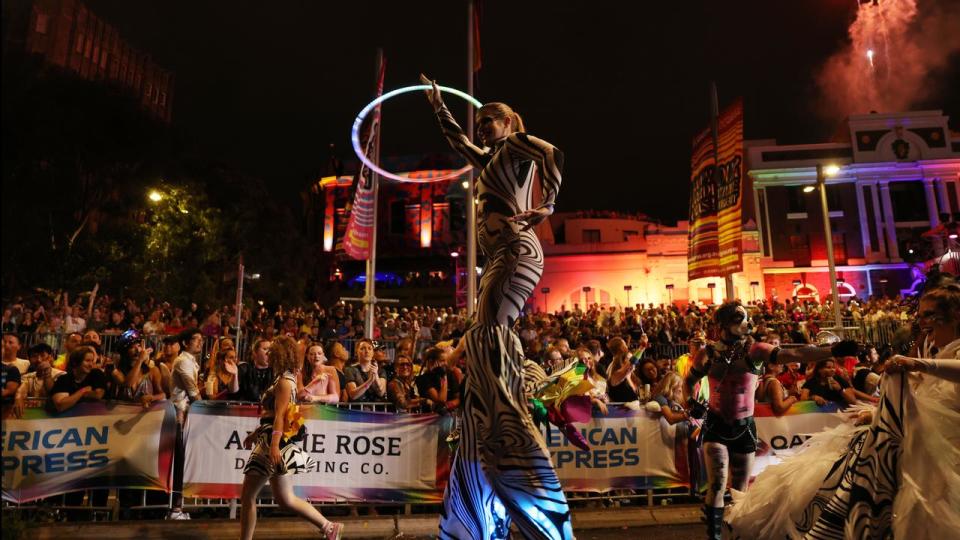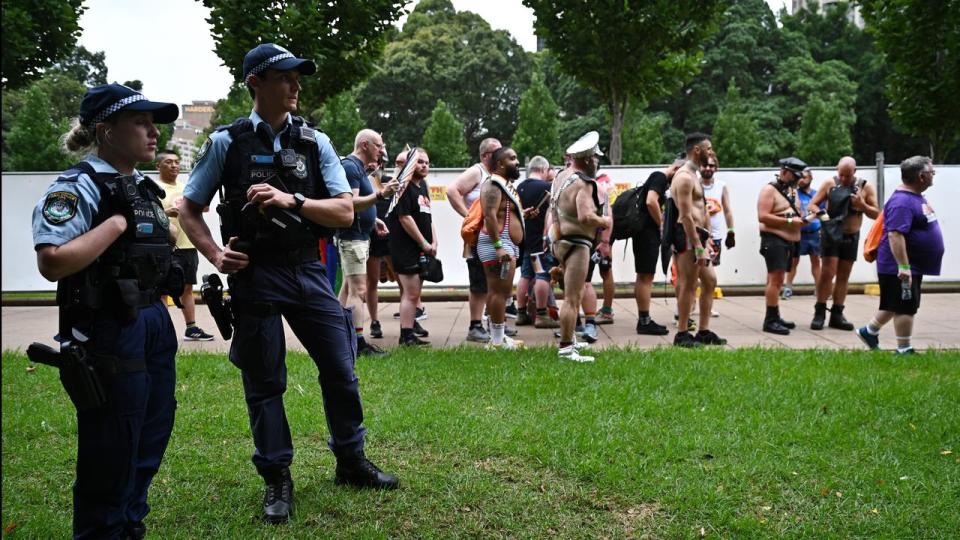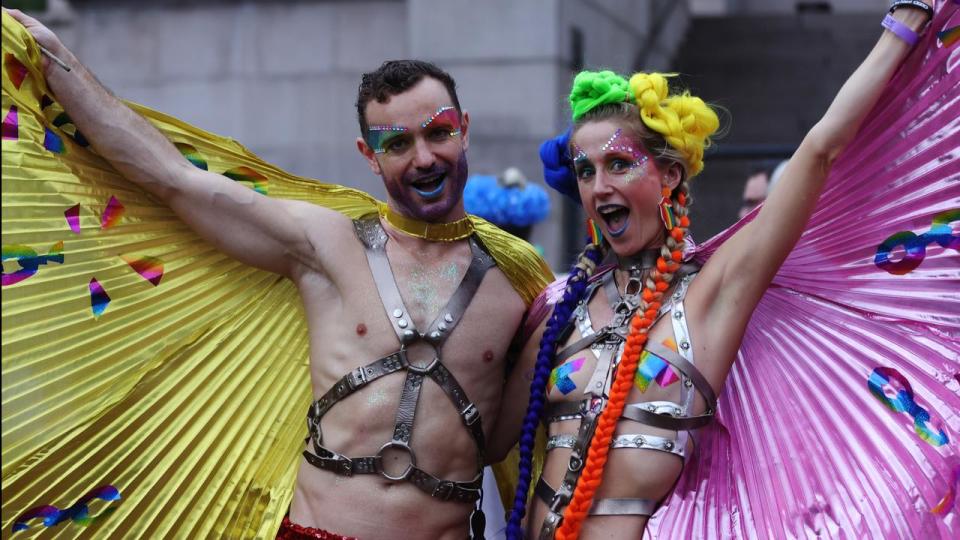'Quite rattled': toll of Mardi Gras policing revealed
Mardi Gras should be a celebration but a study into 2023 pride events suggests heavy-handed policing is still casting a dark shadow over festivities.
Policing at three Sydney World Pride and Mardi Gras events last year was found to be "intensive and aggressive", with invasive questioning as well as "humiliating and potentially unlawful searches", the researchers concluded.
A total police force of 200 officers was deployed for drug detection at the three parties and most charges were for supply rather than possession.

Researchers from UNSW Sydney, the University of Sydney and the University of Newcastle combed through police reports and observations made by Fair Play volunteers who attend such events to educate people about their legal rights.
The findings have sparked fresh calls from the Inner City Legal Centre, which commissioned the report, for an end to drug dog use and fewer police at future events.
Katie Green, a lawyer from the centre, said many partygoers - including Fair Play members themselves - were shaken after interacting with police.
Searches, including strip searches, took up to an hour and left people visibly distressed, she said.
Associate professor Vicki Sentas from UNSW Law and Justice was also struck by the level of disruption and distress.
"People being visibly kind of upset and quite rattled by the intimidating tactics, which, you know, only harms police-community relations," she told AAP.
From the police brutality at the first Sydney Mardi Gras in 1978 to the assault of teenager Jamie Jackson Reed at the 2013 parade, the event has a long and complicated relationship with law enforcement.
The issue came under fresh scrutiny following the decision of Mardi Gras organisers to ask NSW Police not to wear their uniforms in this year's parade.
Prof Sentas said some gains had been made in the relationship between NSW Police and the LGBTQI community, including the use of gay and lesbian liaison officers.
"But there's this parallel universe then when you've got the drug policing operations engaging in sort of aggressive, unnecessary over-policing at events after the parade," she said.

A NSW Police spokesperson said the organisation "worked extensively" with Sydney World Pride organisers and a range of government and non-government stakeholders throughout the 17-day event.
"A range of strategies were utilised which ensured the community was able to enjoy the event safely and securely," they said.
While Prof Sentas stressed it was unclear if all searches made at the events were unlawful, the study was able to establish a pattern that pointed to questionable use of drug detection dogs to justify searches.
Prior studies have found drug detection dogs to be an unreliable indicator of drug possession, and while police are still allowed to use them, the law explicitly prevents them from using a "sniff" as passing the test of "reasonable suspicion" needed to conduct a search.
Jumping straight from drug dog indications to searches is unlawful and police reports suggest this occurred in at least a few instances.
What was more prevalent was police using drug dog indication to then begin coercive questioning, suggesting police were adapting their techniques to circumnavigate the sniffer dog rule.
Arbitrary lines of questioning were used, the researchers found, including asking if friends had taken illicit drugs or if they knew if drugs were being taken into the venue or not.

Study co-author Louise Boon-Kuo from the University of Sydney said the methods to used to instigate a search raised questions about legality.
"We found that police practice shows misunderstanding of the limits of police power to search and strip search," Dr Boon-Kuo said.
"In fact, police records and observer accounts show that search was at times triggered by factors that police policy, Law Enforcement Conduct Commission investigations, statute, or the courts have said are unreliable, such as drug dog indication even when coupled with a nervous demeanour of the person."
Lifeline 13 11 14
Fullstop Australia 1800 385 578


